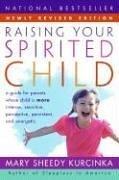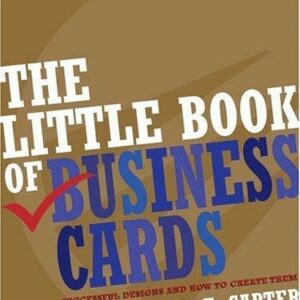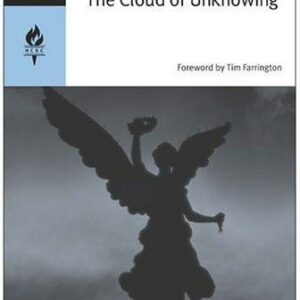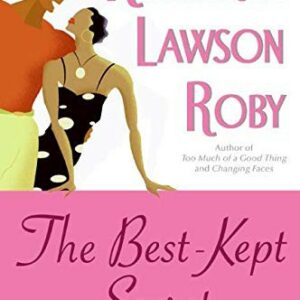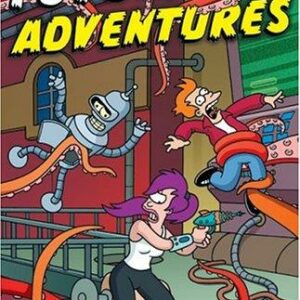The Here and Now
$16.00
| Title | Range | Discount |
|---|---|---|
| Trade Discount | 5 + | 25% |
- Description
- Additional information
Description
From the #1 New York Times bestselling author of the Sisterhood of the Traveling Pants series, The Here and Now is an epic star-crossed romance about a girl who might be able to save the world . . . if she lets go of the one thing she’s found to hold on to.
Follow the rules. Remember what happened. Never fall in love.
The world Prenna James comes from is in ruins. She and the others who escaped are here to prevent humanity’s destruction. But if they don’t follow The Rules, everything that matters will be gone: Friends. Families. Dreams. Love.
Ethan Jarves can never know Prenna’s secret. That she’s not from another place.
She’s from another time.
“This gripping story is set in a world unlike any other and inhabited by beautifully imagined characters that stay with you long after the last page.” – Sara Shepard, bestselling author of Pretty Little Liars
“An appealing romantic thriller . . . [also] a potent reminder that we inherit the future we buy with our actions today.”—Cassandra Clare for the New York Times Book Review
“Fast-paced, gripping, and romantic.”—Publishers Weekly
“Lightning-paced . . . like a cinematic blockbuster.”—Kirkus Reviews
“The Here and Now could just as easily sit among the time-travel sci-fi, coming-of-age, or romantic thrillers of YA. Honestly, even though I really don’t know how to categorize it, I loved it.”—Happily Ever After/USA Today“This gripping story is set in a world unlike any other and inhabited by beautifully imagined characters that stay with you long after the last page.” – Sara Shepard, bestselling author of Pretty Little Liars
“[A]n appealing romantic thriller, ‘The Here and Now’ also serves as a potent reminder that we inherit the future we buy with our actions today.” –Cassandra Clare for The New York Times Book Review
“The Here and Now could just as easily sit among the time-travel sci-fi, coming-of-age, or romantic thrillers of YA. Honestly, even though I really don’t know how to categorize it, I loved it — and the ending made me hope (really, really hope!) for a sequel.”—Happily Ever After/USA Today
“From the author who brought us The Sisterhood of the Traveling Pants come the gripping page-turner about a girl who’s willing to risk it all for love and the fate of the world.” –Teen Vogue
“Lightning-paced . . . like a cinematic blockbuster.”—Kirkus Reviews
“Compelling.”—School Library Journal
“Best known for her Sisterhood of the Traveling Pants books, Brashares forays into science fiction in this fast-paced, gripping, and romantic novel about a girl from a future that seems eerily possible. . . her fans will be happy to find that her prose is as resonant and realistic as ever.” –Publishers Weekly
“Brashares . . . builds on her adroit adolescent characterization and ear for teen dialogue and transports them into an exciting time-travel adventure complete with murderers to thwart and mysteries to solve.”–Booklist
“Skillfully weaving together time travel, planetary devastation, climate change, plague and young love, the author creates an engaging, adventurous tale.” –Shelf-Awareness
“Brashares’ era-hopping race against time is fast paced and heady…perfect for fans of Brasahres’ earlier work, as well as Veronica Roth’s Divergent.” –RT Book Reviews
“Fantasy and science fiction fans will enjoy the intricate cause-and-effect Brashares defines in her story. Filled with suspense and spiced with romance, the story will satisfy any reader who appreciates a well told story. [Brashares] is at the top of her game.” –Examiner.com
“A satisfying mix of science fiction and romance.” –Children’s LiteratureAnn Brashares is the #1 New York Times bestselling author of the Sisterhood of the Traveling Pants series, The Whole Thing Together, The Here and Now, 3 Willows, The Last Summer (of You & Me), and My Name Is Memory. She lives in New York City with her family.
Visit Ann online at AnnBrashares.com and follow @AnnBrashares on Twitter.One
April 23, 2014
We all know the rules. We think about them every day. How could we not know them? We learned them by heart before we came here, and they’ve been drilled into our heads by constant use ever since.
But still we sit, nearly a thousand of us, on plastic benches in a former Pentecostal church (desanctified in the 1990s, I don’t know why) listening to our twelve inviolate rules recited over a crackling PA system by nervous community members in their best clothes.
Because it’s what we do. We do it every year to commemorate the extraordinary trip we all took together four years ago: our escape from fear and sickness and hunger, our miraculous arrival in this land of milk and honey. It’s a trip that almost certainly had never happened before and, based on the state of the world when we left it, will never happen again. So April 23 is kind of like our Thanksgiving, but without the turkey and pumpkin pie. It is also, coincidentally, the day Shakespeare was born. And died.
We do it because it’s easy to forget amid all the sweetness and fatness of this place that we don’t belong here, that we pose a danger to it. That’s why the rules are critical and the consequences of forgetting them are grave. It’s like any strict religious or political system. When your practices are hard to follow, you’d better keep reminding your flock of them.
I put my feet flat on the floor as the projector hums to action at the back of the hall, cutting a beam through the dark air and slowly illuminating the first face on the wide screen that hangs behind the old altar. It takes a moment for the shadows and shapes to become a person, to become someone I know or don’t know. It’s hard to watch this, but they always do it: as we recite the rules they show the faces of the people we lost since the last time we met here. It’s like the “in memoriam” tribute you see on the Academy Awards or the Grammys, but also . . . it’s not. This year there are seven of them. There’s no explanation or commentary. They just scroll through these faces again and again. But most of us have a sense of the story behind each face. We understand, without saying so, the overrepresentation of the fragile, the wayward and the incompliant members of our community up there on that screen.
My mother glances at me as Dr. Strauss stands up from the dais at the front to recite the first rule, the one about allegiance.
The rules are never displayed, never even written down on a piece of paper. That’s not how we do things. We’ve gone back to an oral tradition.
I try to listen. I always do, but the words have been stirred around so many times they’ve lost their particular order and shape in my ears. They’ve melted and dissolved into a chaotic mix of impressions and anxieties.
Dr. Strauss is one of the leaders. There are nine of them and twelve counselors. The leaders make the policy and the counselors hand it down to us and translate it into our daily lives. We are each assigned to a counselor. Mine is Mr. Robert. He’s sitting up there too.
A girl near the back in a green dress stands to recite the second rule, about the sequence of time. Heads politely turn.
It’s an honor to get to recite one. Like landing a part in the Christmas pageant. I was chosen once, three years ago. My mom dressed me in her gold ballet flats and her most expensive silk scarf. She mashed rouge into my cheeks. I got to read the sixth one, about never submitting to medical attention outside the community.
After the girl speaks, we all turn back to the front, obediently awaiting rule number three.
The black-and-white face of Mrs. Branch now takes its turn up on the screen. She was an acquaintance of my mother’s, and I know she died of breast cancer that barely got treated. The photo doesn’t exactly hark back to happier times. It looks like it was taken on the day she got her diagnosis. I look away. Briefly I catch the eyes of my friend Katherine a few rows behind.
I find it’s hard to figure out from watching the leaders fanned out on the dais which one of them is really in charge. No one will tell you, but I think I know. I think this because of something that happened to me when I was thirteen, not long before my turn at reciting the sixth rule.
It was around nine months after we’d gotten here. I was still disoriented, still way too skinny, still watching TV to learn how to talk and act. I hadn’t started going to school yet. I was having chronic breathing problems. My mom said it was really incredibly fortunate that somebody with asthma got to make the trip at all. She said something about my “enhanced IQ” making up for it, but barely. We tried to pretend it wasn’t as bad as it was.
And then in February I caught a bad cold and it turned into pneumonia. My mother knew this almost certainly because she is an MD and keeps a stethoscope in her bathroom drawer. A couple of other members of our community’s medical team came over. I was pretty whacked by that point. I was using an inhaler and they were pumping me full of antibiotics and steroids and God knows what else. There was an oxygen monitor clipped to my finger, and I know it was dipping too low. I struggled. My lungs couldn’t take in enough air. It’s a horrible feeling, in case you’ve never had it.
By the second night it had gotten dire. I was completely out for some stretches, but I saw the look on my mother’s face. She was shouting. She wanted to take me to a hospital. She said a simple ventilator for one night was all it would take to save my life. I guess we didn’t have one in our community clinic then; we were still pretty new here. But putting me in a regular hospital wasn’t something any of them would even consider because of the danger we pose to them, to regular people who were born here, who have different immunities than we do. And because what if, in taking my medical history or getting too close a look at my blood under a microscope, a doctor or a nurse started asking questions?
“There’s no need for her to die!” I heard my mother crying from the next room. She was begging them, promising she would watch over everything, she wouldn’t let anyone else care for me. No blood tests, no diagnostics. She would figure out a way to do it, to keep everything secret and safe.
Sometime later Mrs. Crew arrived. I could feel the mood shift in the house, even deep in my oxygen-poor brain. The screaming and cajoling stopped and there was just this lulling voice from the next room. For a few moments I was strangely alert, strangely cogent, listening as she calmly talked my mother down. “After all we have sacrificed, Molly. After all we have been through . . .” My mother left the room and I heard my counselor, Mr. Robert, talking to Mrs. Crew instead. I felt like I was listening to them from a perch on the ceiling, like I was already dead, as she coolly explained to him the procedure for dealing with my body, the issuance of a death certificate and the proper strategy for handling what remained of my identity in the state and federal databases. They had created our identities here; they could take them away. Finally she offered him some injection or pill or something like that. “The angel of death,” she called it in a low voice, to make my passing more comfortable. She assured him she would stay until it was over.
But it wasn’t over. Sometime in the early morning my lungs started to open up a little. And by the end of the day a little more. And six weeks after that I was reciting the sixth rule in this very hall.
Mr. Botts, two rows behind me, stands up to recite the third rule, about not using our knowledge to change anything. I remember him from our early tutoring sessions. Mrs. Connor, with the thinning hair and in a weird orange tunic, takes up the fourth, which is kind of an extension of the third. I forget how I know her.
A guy named Mitch, who’s a star because he goes to Yale, recites the fifth one, the secrecy rule. That may be the rule we think of most often. The leaders are obsessed with the minutiae of it, with us fitting in and never letting anything slip that might give us away. But at times I seriously wonder, if one of us did let something slip, could anybody ever guess where we are from? And if they did, could they possibly believe it?
The sixth and seventh rules, the ones about medical stuff, are recited by two people I don’t really know and who, like me, probably just barely survived those rules.
I zone out on rules eight through eleven because a purple bead pops off my shoe and I scan the floor for it without appearing to. I’d frankly rather look anywhere than at the big screen up front, because for the finale they’ve left up the photo of Aaron Green, and I suspect that’s no coincidence. It’s a heartbreaking picture of a confused and well-meaning fourteen-year-old who tripped over his lies so clumsily they stopped him from going to school in the middle of last year. His teacher went to his house to check on him, and two days later he drowned in the Housatonic River on a rafting trip with his dad and his uncle. There was no ambulance, no emergency room. Mr. Green quietly followed the protocol; he called the special number he was supposed to call.
I snap to attention for the twelfth rule. It is Mrs. Crew, the angel of death herself, who stands up to deliver it. She is about five feet tall and her hair looks like a cremini mushroom, but she still scares me. I swear she recites that rule staring directly at me.
1. WE MUST UPHOLD ABSOLUTE ALLEGIANCE TO THE COMMUNITY, TO ITS SURVIVAL AND ITS SAFETY, AND ACCEPT THE GUIDANCE OF OUR LEADERS AND COUNSELORS WITHOUT QUESTION OR DISCUSSION.
2. WE MUST RESPECT TIME’S INTEGRITY AND HER NATURAL SEQUENCE.
3. WE MUST NEVER EMPLOY THE EXPERIENCE GAINED IN POSTREMO TO KNOWINGLY INTERVENE IN THAT NATURAL SEQUENCE.
4. WE MUST NEVER CHALLENGE THAT SEQUENCE TO AVOID MISFORTUNE OR DEATH.
5. WE MUST UPHOLD ABSOLUTE DISCRETION ABOUT POSTREMO, THE IMMIGRATION, AND THE COMMUNITY AT ALL TIMES AND IN ALL PLACES.
6. WE ARE FORBIDDEN TO SEEK MEDICAL ATTENTION OR SUBMIT TO MEDICAL CARE OF ANY KIND OUTSIDE THE COMMUNITY.
7. WE MUST USE ONLY THE SERVICES PROVIDED BY OUR MEDICAL TEAM IN ALL CIRCUMSTANCES AND EMPLOY THE EMERGENCY PROTOCOL IF REQUIRED.
8. WE MUST AVOID INCLUSION IN THE HISTORICAL ARCHIVAL RECORD, WHETHER IN PRINT, PHOTOGRAPHY, OR VIDEO.
9. WE MUST AVOID PLACES OF WORSHIP.
10. WE MUST MAKE STRENUOUS EFFORT TO FIT INTO SOCIETY AND NOT BRING ATTENTION TO OURSELVES OR OUR COMMUNITY IN ANY MANNER.
11. WE MUST AVOID CONTACT WITH ANY INDIVIDUAL KNOWN TO US FROM POSTREMO WHO DID NOT TAKE PART IN THE IMMIGRATION.
12. WE MUST NEVER, UNDER ANY CIRCUMSTANCES, DEVELOP A PHYSICALLY OR EMOTIONALLY INTIMATE RELATIONSHIP WITH ANY PERSON OUTSIDE THE COMMUNITY.
Two
A bunch of us get takeout from a Chipotle around the corner from the former Pentecostal church and walk with it to Central Park. The ceremony has fallen on a Wednesday this year, so we’ve taken a vacation day. We eat it on the Great Lawn and kill a couple of hours between the end of the ceremony and the beginning of the semiannual “teen social.” Because our spirits are so light after the Rules Ceremony, why not have a party?
It seems crazy, but that’s what we do. The night of the ceremony everybody in our community between the ages of fifteen and eighteen gets together and tries to fall in love with each other over dumb music and soggy chicken fingers. Good luck with that.
Because if we’re going to love at all, or even like or lust, we have to do it with each other. See rule twelve. And it’s not just for our own safety, as the counselors are quick to point out. It’s for the health and safety of the people outside our community too. It’s not something you can even joke about. Not that we joke about so many things.
At the park it’s me, Katherine, Jeffrey Boland, Juliet Kerr, Dexter Harvey and a few others who go to school in Rockland County. Jeffrey falls asleep in the sunshine, Dexter puts on his headphones, and Katherine and I go for a walk around the reservoir.
“So hard to see Aaron’s face up there on the screen,” I say slowly, glancing at the side of Katherine’s face as we walk. I see the color blooming in her nearly transparent skin.
Aaron lived around the corner from her. He had a little dog, a pug mix or something, named Paradox, that used to run to Katherine’s house every chance it got. Katherine worried about Aaron. It was harder for him than for most of the rest of us. Maybe I worried too. Katherine gave Aaron her old Mongoose BMX bike, and you always saw him riding around on it.
I know how sensitive Katherine is, and I know she’ll hide everything she can, but I want to say something. I want to say at least one true thing.
“He wasn’t much of a swimmer. He never was,” I add. It’s a morbid point for me to make. I realize that, but Katherine looks relieved because it’s my way of telling her that I’m not trying to be too honest here. I’m not trying to challenge anybody. I’m accepting the story of Aaron’s demise, as we all must, even though we know it is total bullshit.
She smiles a tiny bit. I can see the tears welling in her eyes. I see her look up at the cherry blossoms spread like an awning over the bridle path. I can see how much she doesn’t want to cry.
I reach for her hand. I hold it for a moment and let it go. She is the only person I can do that with.
“They renamed his dog,” she says, so faintly I can barely hear her.
“What?”
“Aaron’s dad renamed his dog Abe. He doesn’t come to it.”US
Additional information
| Weight | 8.2 oz |
|---|---|
| Dimensions | 0.5400 × 5.5000 × 8.2500 in |
| Imprint | |
| Format | |
| ISBN-13 | |
| ISBN-10 | |
| Author | |
| Audience | |
| BISAC | |
| Subjects | time travel, books about the future, dystopian fiction young adult, contagion, sci fi books for teens, tween books for girls ages 11-14, sci fi books, books for 14 year old girls, teen fiction books, teen books for girls, books for 13 year old girls, books for 12 year old girls, books for teens 12-16 girls, teen romance books, pandemic, young adult romance, sci fi, science fiction books, young adult books, teen books, books for teen girls, books for teens, ya books, teen girl books, dystopian fiction, YAF015000, YAF052000, romance books |



